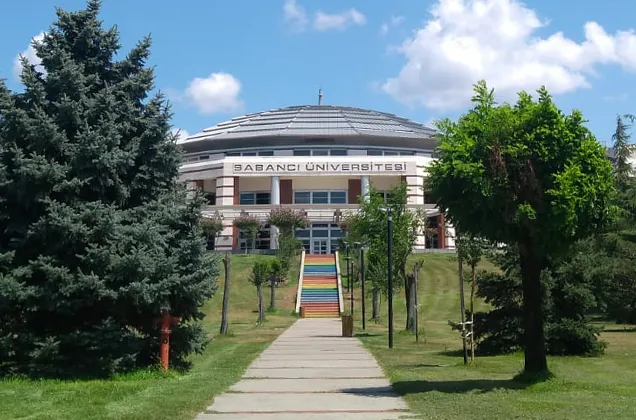20/04/2021
The project in which Ünal Ertan, a Faculty Member at the Faculty of Engineering and Natural Sciences (FENS), was found eligible for support under the TÜBİTAK 1001 Program.

Ünal Ertan's project, which was found eligible for support under the 1001 Scientific and Technological Research Projects Support Program, is titled "On The Rotational Phases of Mass-transferring Neutron Stars".
The main goal of this project is to explain some of the radiation and rotational properties of some neutron star systems that have not yet been explained within the framework of a newly developed theoretical model.
Neutron stars
Neutron stars are bodies with the largest mass density, the strongest magnetic fields, and the highest rotational speeds that can be directly observed in the universe. With a mass close to the Sun and a radius of 10 km, these bodies can rotate hundreds of times per second around their axis of rotation. Neutron stars offer a great laboratory where physics can be studied and tested under these extreme conditions. Some of these stars are located in double star systems, and matter flows over them from a normal co-star such as the Sun. Because they are very dense, mass-transferring neutron stars are very powerful X-ray sources.
These binary systems are called X-ray binary stars. The interaction of the dipole magnetic field of the neutron star with the transferred mass can accelerate and slow down the rotation of the neutron star and determine its electromagnetic radiation properties. In this project, it is aimed to explain some characteristic rotation and accompanying radiation behaviors of X-ray binary stars that cannot be explained by traditional models based on theoretical and numerical studies.
Ünal Ertan said the following regarding the project’s significance. "If successful, the project has the potential to solve some important problems related to neutron stars that have not been understood for many years in high energy astrophysics. We believe that the wide-ranging theoretical model that we have developed within this framework is important in that it will contribute to subsequent scientific studies.”
Three doctoral students from Sabancı University will be involved in the two-year project under the leadership of FENS Faculty Member Ünal Ertan. In addition, faculty members from Istanbul University and Ege University will provide support to the project as researchers.


